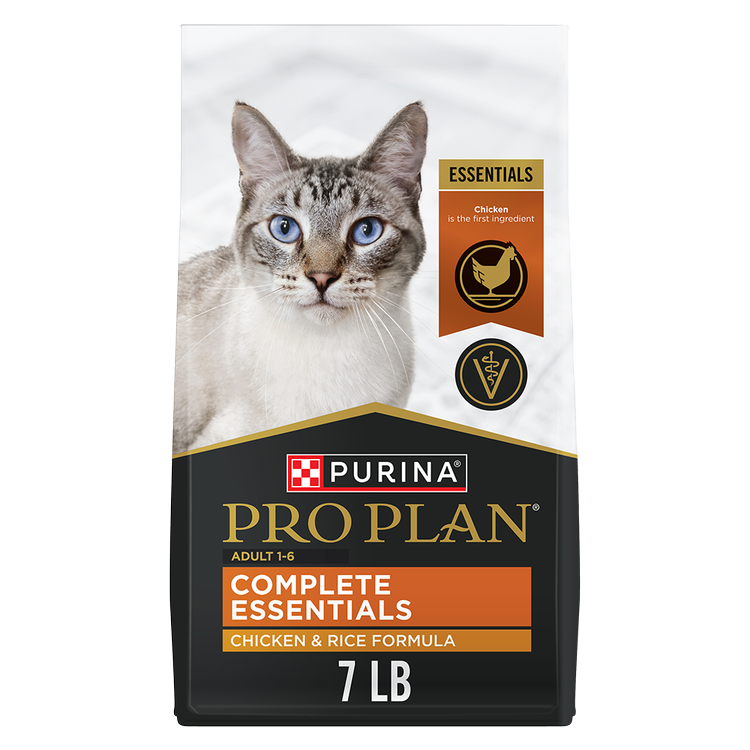As a pet owner, decoding the meaning behind your cat’s meow can be tricky.
Felines may make similar vocalizations in different contexts and at different times. The pitch and tone of their sounds may change as well. It can resemble a cuddly coo one moment but sound like an assertive command in another. (Hint: this could be a sign they want a treat.)
Adding to the mystery is that cats meow to people, but not other cats.
So, what are cats trying to tell us exactly? Here’s what you should know about their vocalizations, and how you can interpret and understand what your cat tries to communicate.
Understanding Why Cats Meow
If you’re asking yourself, “Why do cats meow?”, it helps to know how the sound evolved over time.
Researchers have compared the vocalizations of the domestic cat to those of its closest relative, the African wildcat, a species that also vocalizes a lot.
They have discovered that the vocalizations of the domestic cat have changed to become more pleasant to the human ear.
This is likely why felines have evolved to meow almost exclusively to humans, and rarely use it as part of cat-to-cat communication. Their meows are less threatening, as well as more high-pitched and kitten-like.
People are more sensitive to this type of sound and also more likely to respond positively, such as by providing care—like we do when an infant cries.
When cats communicate with each other, the interactions can sound and look quite different.
Cat Yowling
When corresponding with each other, cats use scent, facial expression, marking and body language. They also rely on vocalizations such as hissing to ward off an unfamiliar cat or shrieking when hurt or afraid.
Another sound you might hear is yowling. Cat yowling is dramatic and can be unsettling to the human ear, especially if it persists for a long period of time.
While some felines yowl to mark their territory, the sound is commonly heard during the mating process. Females yowl when they’re in heat, and males do it when they pick up their scent. (Note that if your cat has been neutered, you can expect less of this kind of vocalization.)
Why Do Kittens Meow?
Before they turn to their owners for food and care, kittens rely on their mothers.
At this early stage of life, kittens will meow to solicit attention from and communicate with their primary caregiver. Once kittens mature, become more self-sufficient and learn to socialize with other cats and people, they stop meowing to other felines.
Why Do Cats Meow at Humans?
Meowing can develop into a “language” used by your cat to communicate with you. Research suggests cats have refined their meows specifically to manipulate people—and it works!
Cats can learn to modify the characteristics of their meows, such as their tone or duration, to let people know what they want, particularly when it comes to food.
Not surprisingly, the same research shows cat owners are significantly better at understanding their cat’s vocalizations than non cat-owners.
That’s a pretty remarkable result, considering respondents in the study didn’t have any visual clues to help them.
When your cat meows, it might be to:
- Greet you
- Let you know they’re hungry
- Ask to go outside or come inside
- Get your attention
- Notify you that something is wrong
Consider the context and timing of your cat’s vocalization if you’re not sure what they want. Did you just come home? Is it mealtime? Do they seem bored? These are just some of the questions that can help you understand them.
Too Much Meowing
Excessive meowing may become overwhelming for some pet owners. If you want a quieter cat, first consider why they’re so vocal and take steps to address the issue.
For example, if your pet has a habit of meowing for attention (more attention than you’re able to give), show them that you’ll only tend to them when they’re quiet. Wait for a break in vocalization to pet or play but stop if they begin meowing again.
For cats that meow for food periodically, don’t reward this behavior. Feed them at set times or use an automatic feeder to do the same.
Keep in mind that some cat breeds are more vocal than others. You may just have a cat that likes to communicate.
Final Thoughts on Why Cats Meow
Hopefully this guide has helped you learn more about why and how your cat communicates with you. The better you understand their vocalizations, the better you will be able to understand your cat.
Get more tips on cat behavior from our experts on our Pet Expertise page.
Related articles

Earn myPurina Rewards with Every Purchase
Use your points for treats, toys, and gift cards with myPurina app.








